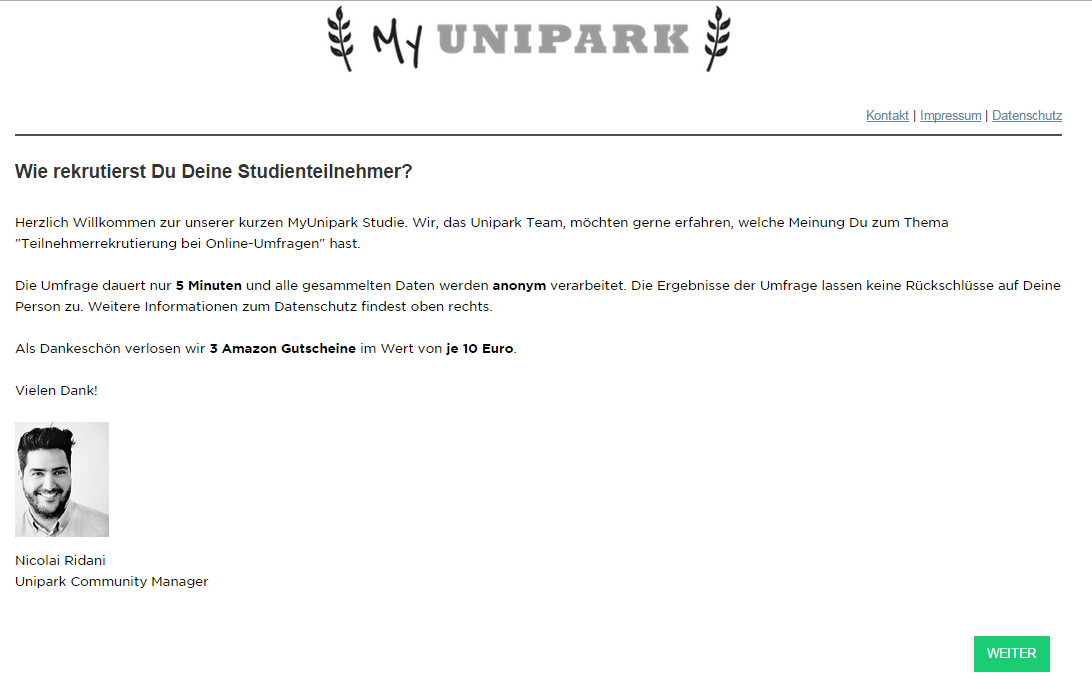Tipps & Tricks
How to write a proper survey introduction? We show you how!
We are increasingly confronted with online surveys where one immediately loses the desire to participate. The reason for this reaction are poorly designed start pages lacking important information. Since the first page of an online survey is extremely important for the success of the survey, we want to show you what is important when creating the start page of an online survey – and what information absolutely must be included.
Short and sweet. This motto applies particularly to the start page of your online survey. Try to keep the instruction text on the first page of the survey to a minimum while maintaining clarity. The aim is to inform the participants about the central aspects of the survey without making their eyes glaze over from reading a wall of text (Thielsch & Weltzin 2012: 113).
To check whether all relevant information is provided on your start page, see if it answers these three questions from Thielsch & Weltzin:
• What is the topic? What is the goal of the survey?
• Who is responsible for the survey? What institution is behind it?
• How long will the survey take?
In addition, it makes sense to include a short note on anonymity and data protection on the start page. If possible, the contact persons of the study should be linked, either via e-mail or a website link. The first page of the survey is also the right place to draw attention to any corresponding competitions, participation fees, or a general report on results (Thielsch & Weltzin 2012: 113). It is also advisable to place the logo of your university or company in the header of the start page. This gives the survey a more professional appearance.
Tip: A small photo of you on the start page gives the survey more personal touch, which can results in an increased response rate.
An example start page:

Sources:
Thielsch, M. T. & Weltzin, S. (2012). Online-Umfragen und Online-Mitarbeiterbefragungen. In M. T. Thielsch & T. Brandenburg (Hrsg.), Praxis der Wirtschaftspsychologie II: Themen und Fallbeispiele für Studium und Praxis (S. 109-127). Münster: MV Wissenschaft.
Gräf, Lorenz. (2010). Online-Befragung. Eine praktische Einführung für Anfänger. Münster: LIT Verlag
